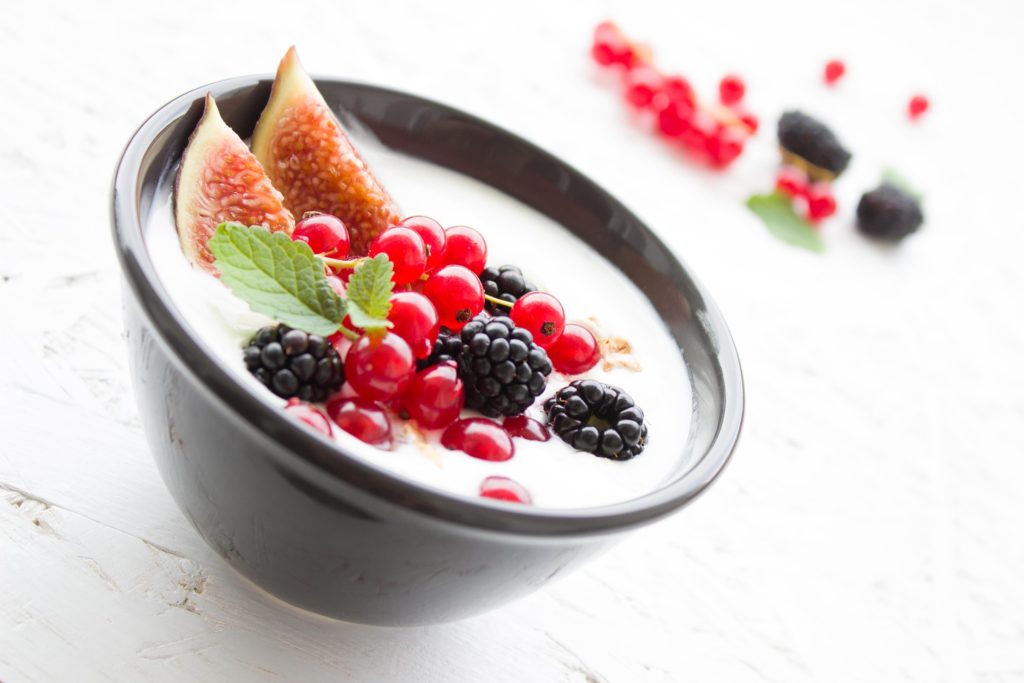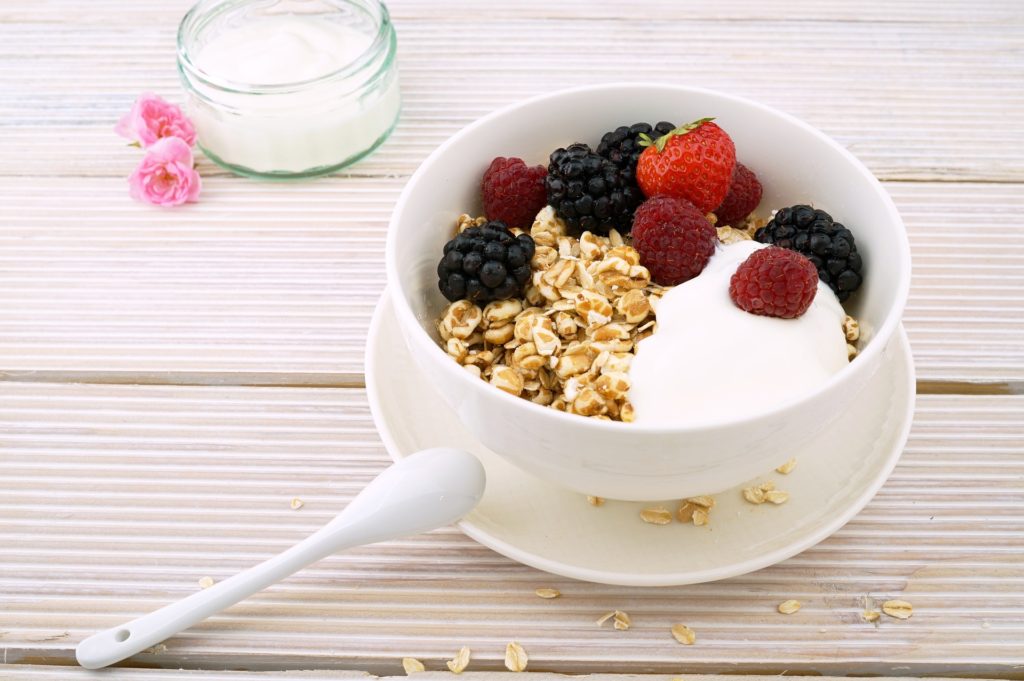The best probiotic for gut health should be a probiotic that contains a large variety of helpful bacteria strains. It should also contain a guaranteed number of live cultures and have a shelf life of at least 24 months.
The best way to maintain healthy levels of beneficial gut flora is to take regular supplements with good quality culture counts, preferably one with multi-strain cultures containing at least 10 billion per dose.
Best Probiotic for Gut Health
Many people are turning to probiotics to improve gut health. But which strains should you take? How much do you need in order for it to be effective? And when is the best time to take them?
The human intestine is home to tens of trillions of bacteria, both good and bad. Although most over-the-counter probiotics contain numerous strains, the three primary species are Lactobacillus acidophilus DDS-1, Bifidobacterium lactis HN019 (a.k.a. “B. lactis”), and Lactobacillus casei Shirota (LCS). These are the best probiotic for gut health.
All three of these species have been shown in research to play a positive role in human health. For instance, Lactobacillus acidophilus DDS-1 is the primary species used for yogurt production and has more than 1,000 scientific studies backing its benefits on digestion-related issues, such as constipation and diarrhea.
Bifidobacterium lactis HN019 has been shown to improve lactose digestion in teenagers, and also boosts the levels of Bifidobacterium longum, both good for gut health.
And Lactobacillus casei Shirota is used to make products such as pickles and sauerkraut and can increase immune system power against colds or flu by producing antiviral compounds when in contact with the intestines.

Recent Research on Gut Health
Recent research claims that these probiotics “improve human health” when consumed regularly. This means you need to take them every day in order for it to be effective, not just at certain times when you think you might need them. For instance, if you were sick recently then taking a dose after recovering will do very little in the long run.
Another important factor is how much of each microbe strain you take, and at what time. For instance, studies have shown that taking 15 billion CFU (colony-forming units) of Lactobacillus acidophilus DDS-1 per day can improve your intestinal flora and help control occasional diarrhea. On the other hand, 5 billion CFU twice a day was enough to reduce lactose intolerance in teenagers, but it wasn’t strong enough to fight off colds or flu.
Other research claims that regular consumption must be done for 30 consecutive days before any noticeable benefits occur, but this does not apply to everyone. Some people may see an improvement within a week while others may not notice a difference until they’ve been taking it for several months.
Best Time to Take Probiotics
The best time to take probiotics is also quite individualized. For those who haven’t taken them before, or those whose intestinal flora is really out of whack, experts recommend starting with 1-2 capsules 3 times a day and slowly building up to 4 twice a day. This way the body has enough probiotics to start off slow and give you an idea of how your personal digestive system will handle this new supplement. Thereafter you may experiment with different dosages based on your needs at that point in time (i.e., if you’re dealing with constipation take more; if diarrhea then takes less).
As long as you take into account the above information, you should be able to take advantage of all the benefits probiotics have to offer. But if you see no improvement even after taking a high dosage for several weeks then there may be a different cause for your problems and other measures must be taken.
Signs You Need More Probiotics
Here is a list of some common signs that could indicate you need more probiotics in your diet: extreme fatigue, bloating or gas, loose stools or diarrhea, irritable bowel syndrome (IBS), acne, persistent coughs or allergies, yeast infections/hay fever, frequent colds or flu… In any case, if you continue experiencing these same symptoms after taking higher dosages of probiotics for 2-4 months then it’s probably time to look into other causes and see a doctor for further assistance.
In general, you want to make sure your probiotic supplement contains the following: at least 1 billion CFU, multiple species of bacteria (i.e., acidophilus, Bifidus, etc.), and live cultures. The best way to ensure that it is free from harmful contaminants such as yeast or mold is to purchase one that’s self-certified through an independent third party like Consumer Labs, USP, or NSF International. This can also help determine if there are any added fillers in the product that may be unnecessary based on what strain of bacteria was used. If you have trouble finding a quality supplement then consider making your own batch by adding foods rich in probiotics to your diet or consider purchasing high-quality fermented foods instead. Sources:
Health benefits” when consumed regularly. This means you need to take them every day in order for it to be effective, not just at certain times when you think you might need them. For instance, if you were sick recently then taking a dose after recovering will do very little in the long run.
Another important factor is how much of each microbe strain you take, and at what time. For instance, studies have shown that taking 15 billion CFU (colony-forming units) of Lactobacillus acidophilus DDS-1 per day can improve your intestinal flora and help control occasional diarrhea. On the other hand, taking only 3 billion CFU of S. boulardii per day is enough to help prevent a relapse of Clostridium difficile, but not enough to fight against heavy diarrhea associated with rotavirus or traveler’s infectious diarrhea.
Find Out What Works for You
The best way to find out what works for you – whether it be the amount, duration, or timing – is by experimenting with your dosage and maintaining a diary so you can correlate different results based on specific doses at specific times. Then once you’ve determined what gives you the desired results, stick to that until something changes.
In addition, some people have reported feeling better after taking probiotic supplements even when their gut flora was healthy before they took them. This means that simply taking probiotics may help fight other problems throughout the body, even if there is no direct improvement to your digestive system. For instance, studies have shown that taking just one billion CFU of Lactobacillus rhamnosus could help reduce your risk for eczema in children by 53%.
So if you feel good all over but think you might need a boost to your immune system, decreased mental fog, etc., then taking a single strain supplement can be beneficial as well. But this should not replace taking the regular multi-species product since different strains work in different ways and provide different benefits (i.e., Lactobacillus acidophilus vs S. boulardii ), so make sure you continue taking the multi-species probiotic even when you start taking a separate strain supplement. Sources:
Other Tips for Improving Your Gut Health
Aside from adding supplemental probiotics to your diet, there are other ways in which you can promote healthy gut flora through food and drink. Here are some good sources of prebiotics that will help nourish your existing gut flora so they can produce more beneficial enzymes, acids, vitamins, etc.: asparagus artichokes jicama garlic leeks onions chicory root raw oats bananas
There are also plenty of high-quality fermented foods out there that provide similar prebiotic benefits while also providing live cultures (reconstituted or extract) like yogurt (regular cow’s milk, sheep’s milk, soy), sauerkraut (red/white cabbage), kimchi (cabbage and other vegetables), and kefir (milk and non-dairy). The recommended serving size of these foods is several ounces a day or 1/4 to 1/2 cup for yogurt and sauerkraut, but you can also find them in capsule form as well.
One final tip is to add bone broth to your diet. Not only does it provide quality protein that will help repair your muscles after a workout or replenish neurotransmitters in the brain, but it also contains many nutrients like calcium, magnesium, phosphorus, silicon, sulfur, proline, and glycine — all of which promote gut and skin health.
The best bone broths are made from the bones of healthy grass-fed livestock, vegetable scraps (onions, carrots, celery), apple cider vinegar (to help leach minerals from the bones), and filtered water; they should be simmered for at least 12 hours to ensure all the nutrients are released. These are some of the best probiotic for gut health.

Good Bacteria Beyond the Stomach
The secret keys to good health could be found in yogurt and other fermented foods. But new studies show these ‘good’ bacteria go far beyond our stomachs.
“The root of all diseases is acidity,” said young Ayurvedic doctor Vinod Verma, who practices the ancient Indian medical tradition at his clinic in India’s northern city of Chandigarh.
He tells his patients to limit their intake of many fruits and vegetables, which he says increases the acidity levels in the body and provides the best probiotic for gut health. Verma instead recommends eating mostly root vegetables – carrots, beets, radishes – as well as nuts and sprouted beans that he claims will help fight disease by balancing pH levels.
“We are lacking in alkaline, but our blood should be slightly alkaline,” Verma said.
The food we eat normally has either an alkalizing or acidifying effect on the body’s pH levels. Processed foods, meats, and dairy products produce acid in the body, while most fruits and vegetables have an alkalizing effect.
“Most Americans are in an acidic state,” Verma said. “This leads to many types of cancer.”
The medical community has long promoted the benefits of eating a balanced diet that includes fruits and vegetables, but it disagrees with Verma’s claims that alkaline-producing foods can prevent or cure cancer. Many doctors say there is little scientific data to back up his assertions.
Conclusion
If you’re looking for a probiotic that can help improve your gut health, we recommend trying one of the options above. All of them are great choices and will help replenish your gut flora while also providing other benefits.
The Health Wealth Lifestyle has provided the above article on the best probiotic for gut health as an overview of your inquiry. Please consult a medical professional as you see fit.
